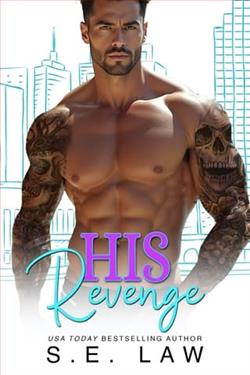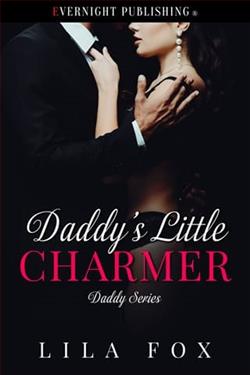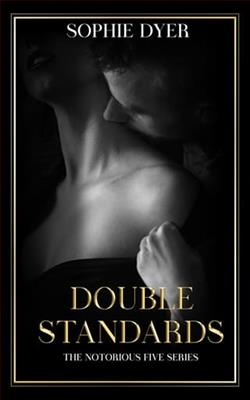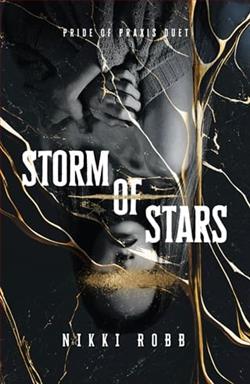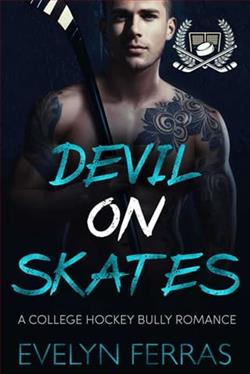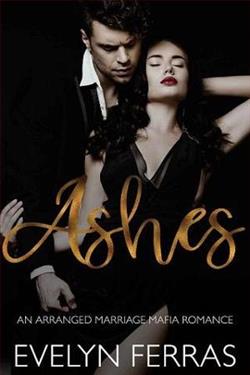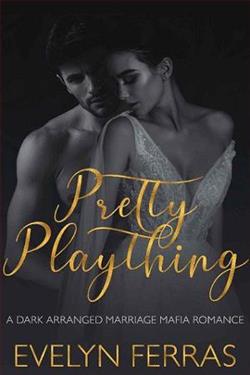Page 74 of End Game
Tuesday, 7 August – day 11 of the Games
WHENPETROV ARRIVEDat Heathrow airport less than twenty-four hours after he’d left the country, he presented a different passport to customs. Mr Petrov was driven straight to the embassy, where the Ambassador and Faulkner were waiting for him.
‘Moscow are not pleased about the decision Sun Anqi took on Sunday without consulting us. They were under the impression we were working as a team.’
‘That woman is a loner, not a team player,’ said Mikailov, as he looked down at the morning papers that were spread out on his desk.
Petrov tried to read the headlines upside down.
‘They don’t make good reading,’ said the Ambassador. ‘First Roycroft, then the Natasha Korova story. TheDaily Mailare speculating that Roycroft’s death is part of a bigger plot to undermine the Olympics, and they’re already hinting as to who theperpetrators might be. So far, we’re not in the frame, but the Chinese aren’t going to be pleased.’
‘Sun Anqi is claiming,’ said Petrov, ‘that if she hadn’t eliminated Roycroft, she would have had to abort her entire plan for the closing ceremony, as no one could take her place, and it would have meant years of preparation down the drain.’
‘You worked closely with her on the Natasha Korova kidnap,’ said Mikailov, ‘so did she tell you what she has planned?’
‘No,’ admitted Petrov. ‘Other than to warn me that it would be unwise for you or any members of your family to attend the closing ceremony.’
‘Then I will have to catch a diplomatic cold,’ said the Ambassador, ‘while you never returned from Moscow.’
‘Any news regarding the spiking while I’ve been away?’ Petrov asked.
‘An Italian Sample Collection Officer had been selected to test the winner of the ten thousand metres,’ said Faulkner, speaking for the first time. ‘However, when he found an envelope in his locker containing ten thousand pounds, he suddenly suffered from a stomach upset and on his doctor’s advice was confined to his bed for the rest of the day. Luckily, a Russian official was on hand to take his place at short notice,’ Faulkner assured them. ‘An hour later,’ he continued, ‘the Brazilian Sample Collection Officer failed to turn up, after meeting a Chinese masseuse who believed in happy endings. A Chinese observer kindly volunteered his services when they needed a last-minute replacement.’
•••
The results of the day’s drug testing reached the chairman of the London Games Committee shortly before midnight. Lord Coe insisted that further tests should be carried out, and after hearing the results, he insisted on a third test, something the professor had never done before. When they revealed the same results, Lord Coe called Sir Julian, just after three o’clock in the morning, to seek learned counsel’s advice.
Sir Julian listened carefully to what the Games chairman had to say, while making copious notes on the pad by his bedside table. He then summoned Lord Coe to his chambers in Lincon’s Inn Fields and told him who else he considered should be present for the meeting.
Four people were woken during the next twenty minutes. All four of them accepted that it was an emergency and confirmed they would get to Lincoln’s Inn Fields as quickly as possible. One was driven in an official Games car, another hailed a taxi, the third drove himself, while the fourth pedalled furiously all the way from Fulham.
After Sir Julian had put the phone down, he took a cold shower and dressed as if he was attending a morning conference, which is exactly what he would be doing. It just happened to be four o’clock in the morning. He walked the short distance from his apartment in Lincoln’s Inn Fields to his chambers on the other side of the square.
After picking up five notepads and half a dozen felt-tip pens from his office, he unlocked the consultation room. It usually had to be booked in advance with the chamber’s clerk, but not in the middle of the night. He took his place at the top of the table and began going over his notes while underlining the salient points the chairman had made, only to be interrupted by the first person to arrive.
‘Good morning, Sir Julian,’ said an out of breath junior.
‘Good morning, Peter,’ he replied. ‘I will require you to make detailed notes of everything that is said at the meeting – a copy of which you will leave on my desk before you return home.’
‘Of course, sir,’ said Peter, as there was a knock on the door.
Lord Coe looked as if he hadn’t slept for the past ten days, and now he was expected to deal with an emergency that could undermine seven years of dedicated work. Julian sympathized with the poor man. However, he accepted that, as the senior Olympic judge, he would be expected to offer impartial advice, and not be influenced by any personal feelings.
‘I must apologize for asking you to take this meeting at such short notice,’ said Coe after the two men had shaken hands, ‘but time isn’t exactly on my side if I’m to chair the daily press conference at ten o’clock, not to mention a medal ceremony that is scheduled to take place this afternoon.’
‘Agreed,’ said Sir Julian. ‘May I suggest you sit on my right, and I’ll put the professor on my left? Sir Keith can sit next to you, while Commander Warwick can sit beside the professor.’
No sooner had the head of chambers made this suggestion than Professor Cowan appeared, with Sir Keith Mills, the deputy chairman of the Games, following moments later. The Commander was the last to arrive, but then he’d had to come from the Olympic Park. Sir Julian couldn’t remember when he’d last seen his son unshaven.
‘Allow me to begin,’ said Sir Julian, once introductions had been made and they’d all sat down, ‘by thanking you for attending this meeting at such short notice. However, noneof us can be in any doubt about the gravity of the situation and the consequences for all concerned were we to make the wrong decision.’
No one disagreed.
‘I chair this meeting,’ continued Sir Julian, ‘in my capacity as an honorary Olympic judge. My duty is to listen carefully to what you all have to say before I pass judgement. To that end, perhaps it might be wise to ask Professor Cowan to make an opening statement.’ He just avoided saying, on behalf of the Crown.
The professor sat bolt upright in his chair and placed a thick file on the table in front of him before he spoke. ‘Good morning, gentlemen,’ he said, and as it was eleven minutes past four, it was an accurate statement. ‘My responsibilities, as you will know, are limited to testing any urine samples supplied by athletes who have progressed to the next round, or won medals in their event. It may interest the committee to know that, to date, only three competitors have been disqualified during the Games. Two Turkish athletes, following the semi-finals of the weightlifting, and one heavyweight boxer from Colombia. However, after the events that took place in the main stadium yesterday,’ continued the professor, ‘over a hundred urine samples were sent to my laboratory in Harlow for testing, and I can report that two contained banned substances.’
Still no one interrupted as they waited to hear the names of the two athletes involved.








